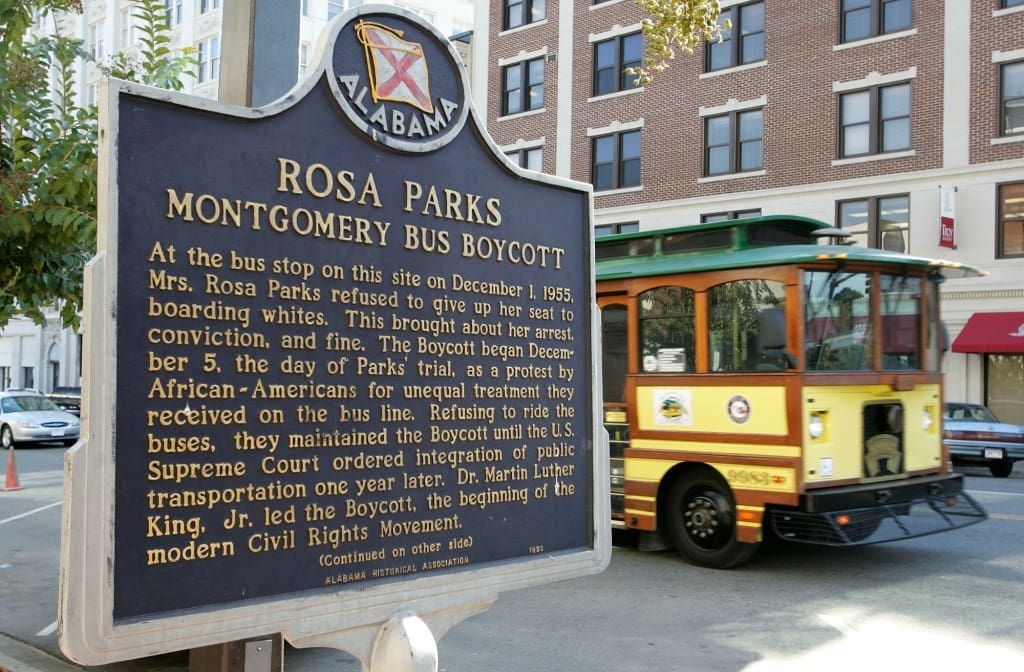On December 1, 1955, Rosa Parks made a pivotal decision that would become a defining moment in the American civil rights movement. Her refusal to surrender her seat to a white passenger on a Montgomery, Alabama, city bus led her to arrest and triggered a significant and historic boycott.
Rosa Parks, a Black seamstress living in Montgomery, Alabama, became an iconic figure in the fight against racial segregation. On an ordinary day in December 1955, Parks boarded a city bus and sat in the ‘colored section,’ as mandated by the segregation laws of the time. When the bus began to fill, she was ordered to relinquish her seat to a white passenger. Parks quietly refused, an act of defiance that led to her arrest and charged under the segregation laws.
Her arrest catalyzed a 381-day boycott of the Montgomery bus system, orchestrated by the Black community to protest segregated seating. This boycott was not only a display of unity within the community but also sent a strong message that resonated throughout the country. The effort, led by civil rights leaders, was instrumental in challenging racial segregation and laid the groundwork for future civil rights actions.
Throughout this period, the resolve of the Black community in Montgomery was tested. The boycott also elevated Martin Luther King Jr. to national prominence as a leader of the civil rights movement. He became a central figure, advocating for nonviolent protest—a principle that guided the movement and had a profound impact on its progress.
This historical event is often cited as a turning point in the civil rights movement. It highlighted the inherent inequalities present in the American system and mobilized nationwide efforts to bring change. Rosa Parks’ simple yet powerful action demonstrated the power of individual courage in the face of oppressive systems.
Rosa Parks’ refusal to give up her seat on that December day became a symbol of resistance against racial injustice. Her courage, and the subsequent Montgomery Bus Boycott, marked a significant stride towards equality and civil rights in America. The legacy of Rosa Parks continues to inspire movements for justice and equality to this day.
Source: Sun-sentinel












